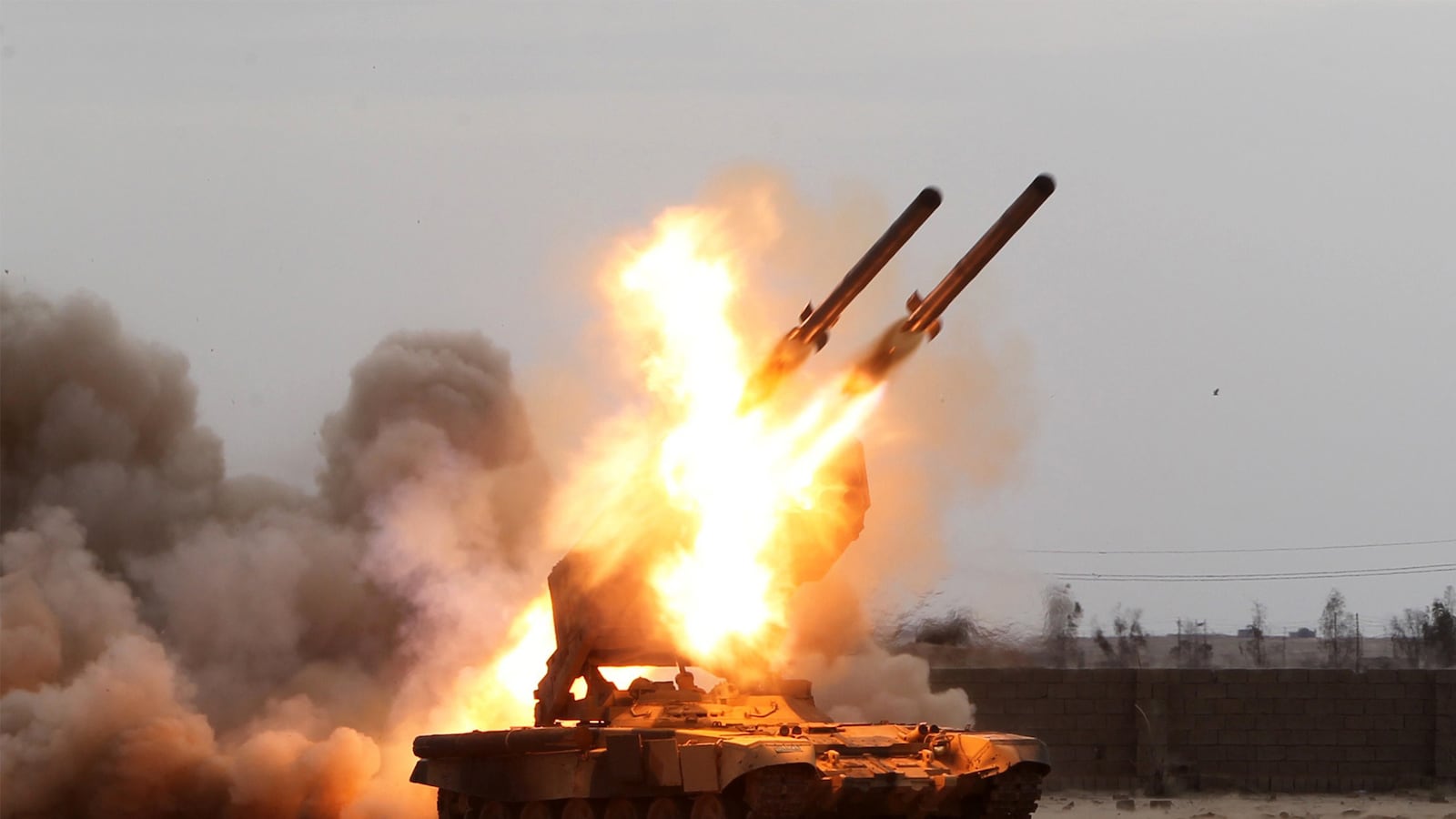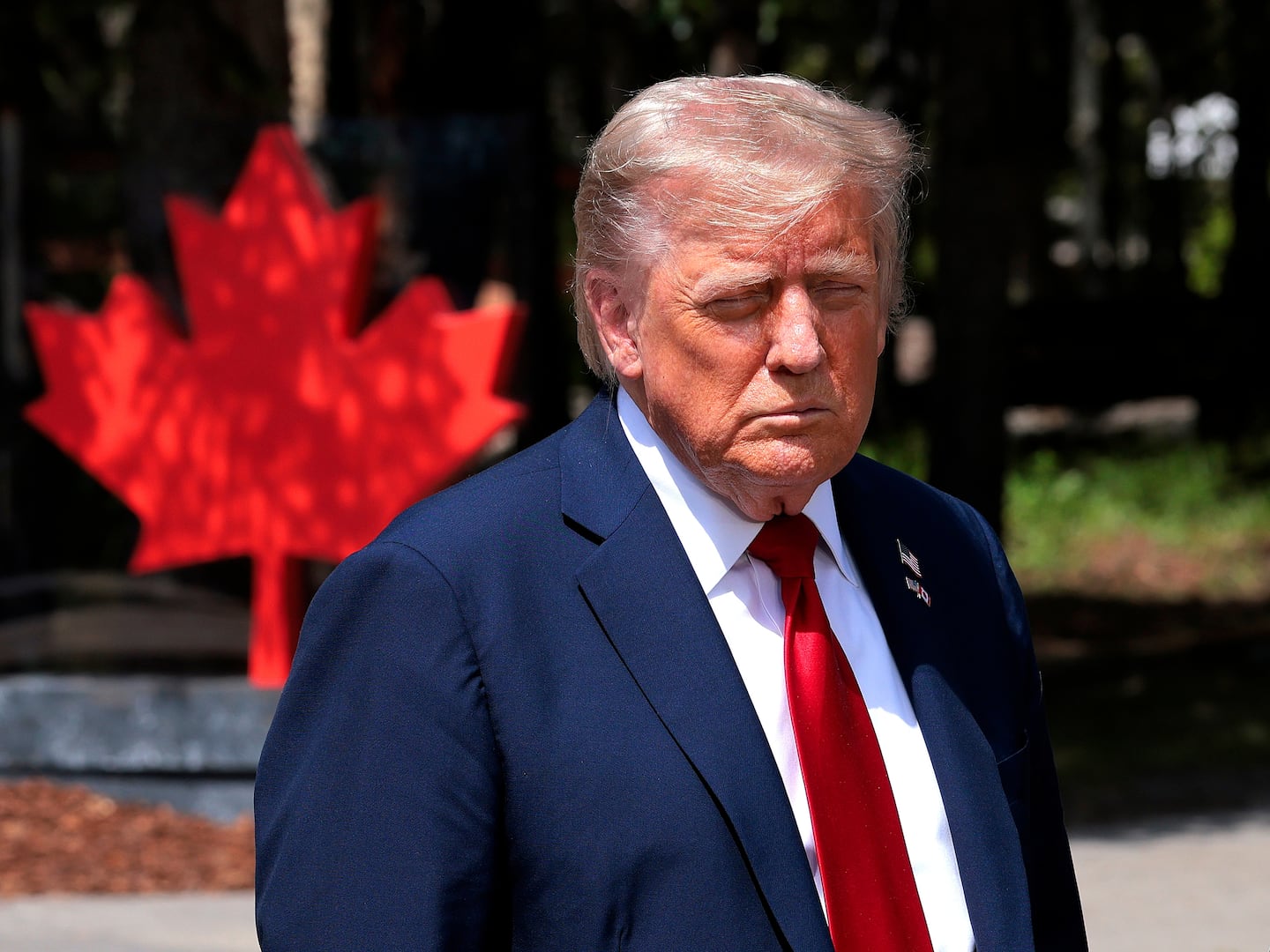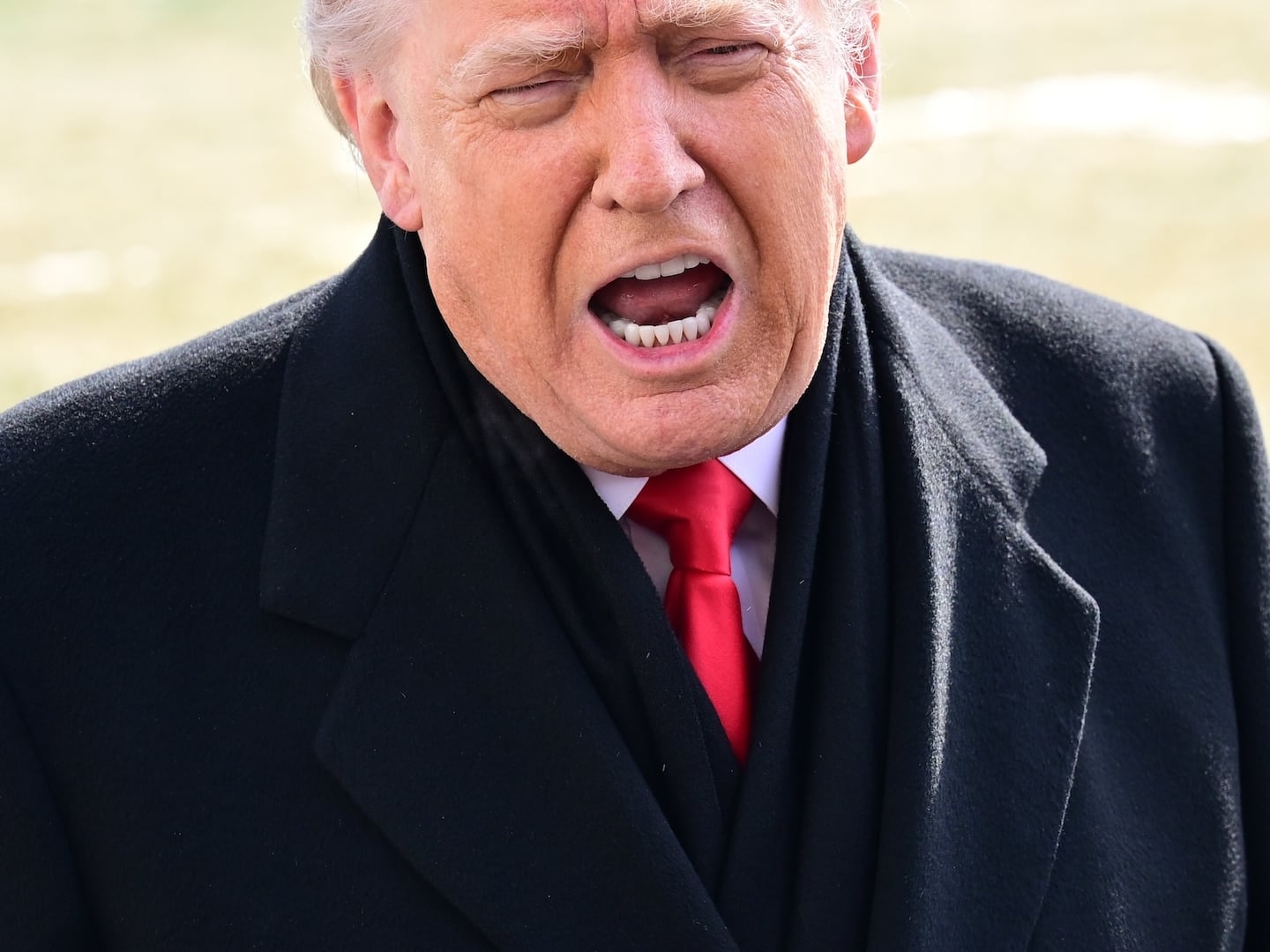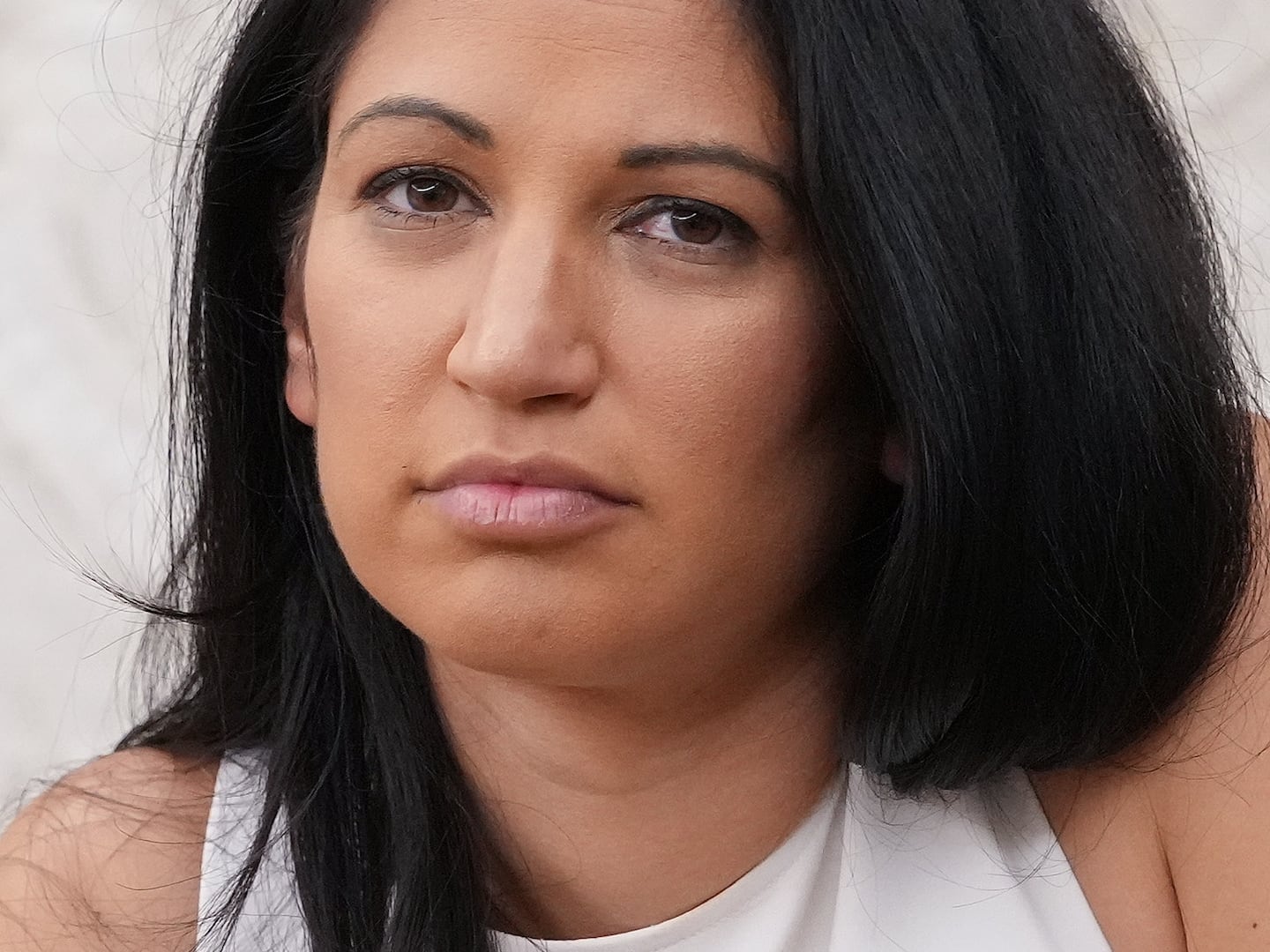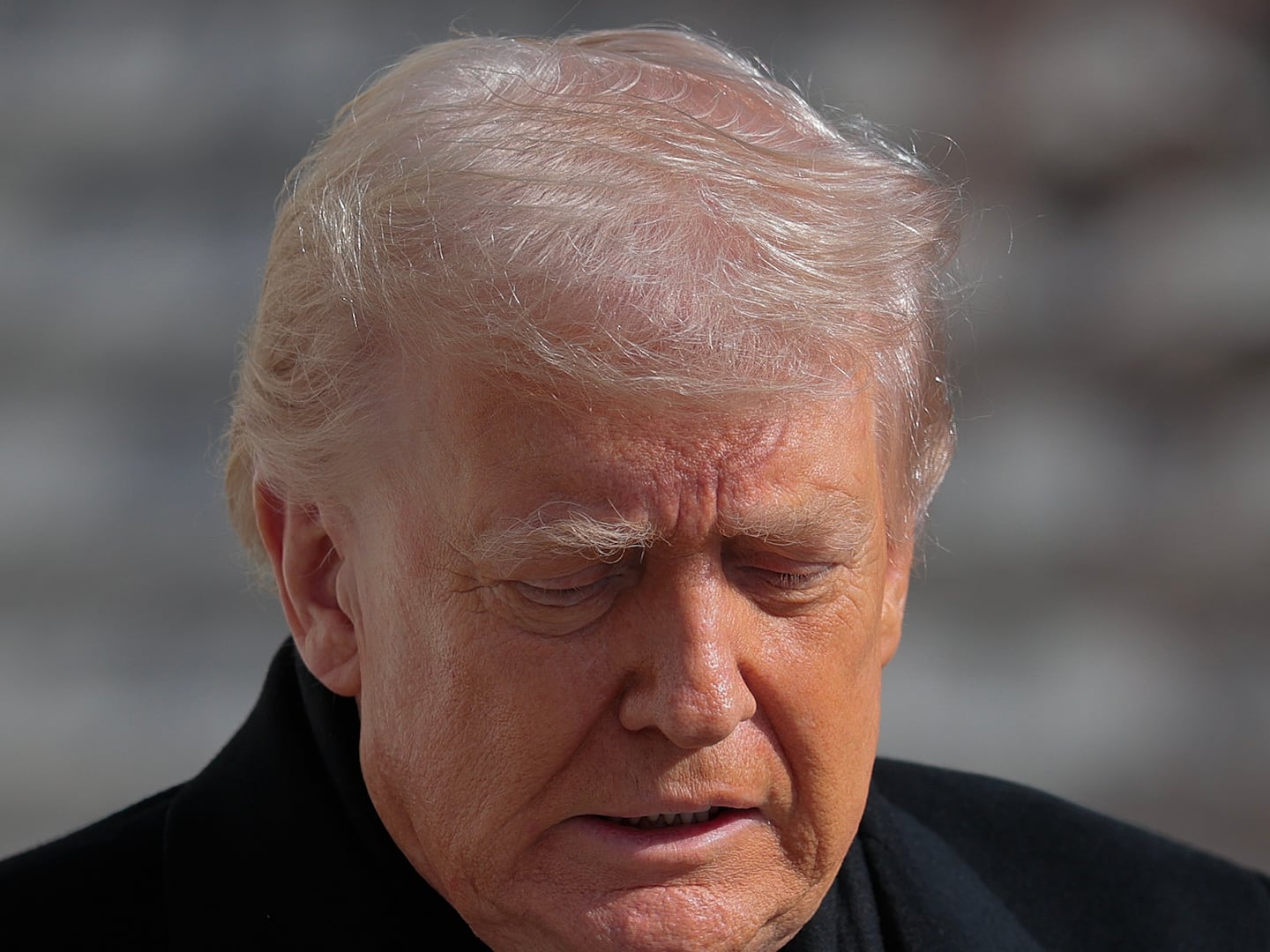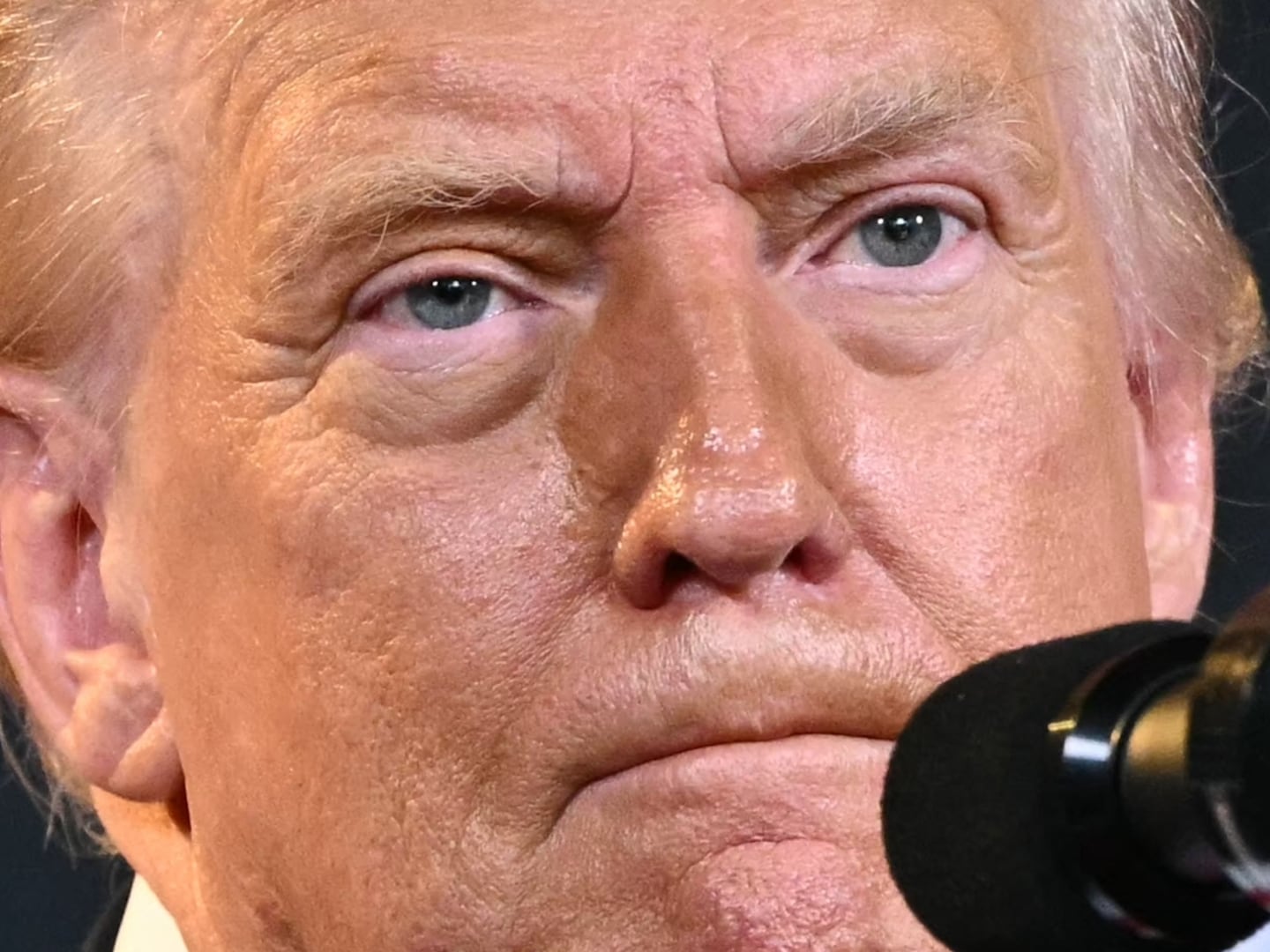There is a split between U.S. and Iraqi officials about which city to take next in the campaign against the self-proclaimed Islamic State, with the divide running along Iraq’s two historically important rivers—the Tigris and Euphrates.
U.S. officials are urging Iraqi forces to keeping fighting north along the Tigris River while Iraqis want to shift toward the Euphrates, two military officials told The Daily Beast. At issue is what is more important—going after a major Islamic State stronghold or expanding the security buffer around the capital, the nation’s economic and political keystone.
The decision over which target to attack has deep implications in Washington and Baghdad. Attacking to the north, towards oil-rich Baiji, could keep the hard-won momentum against ISIS rolling, but any setback could be crushing for the still weak Iraqi forces. It would also leave Baghdad’s western flank exposed. Attacking Anbar instead would secure that flank, but could also stall the larger campaign, leave Kurdish troops and American fighter jets battling ISIS practically alone, while strengthening Iranian-backed militias’ influence in Baghdad.
Some U.S. military leaders argue for the first option, hoping to sustain the momentum of the March 31 win in the central city of Tikrit, the first major victory against ISIS. They want Iraqi forces to keep heading north along the Tigris and clear the highway route toward Mosul, Iraq’s second largest city and the capital of ISIS’s Iraq caliphate. That highway runs along the Tigris.
Where U.S. officials once privately pushed to move north toward Mosul, they now are suggesting the next major city of Baiji, between Tikrit and Mosul. Only after Baiji, which at its peak was home to 200,000 residents, would U.S. military leaders recommend tackling Anbar province and then Mosul after that, two military officials told The Daily Beast.
U.S. officials say securing the refineries in Baiji would be a much easier battle than the fight for Tikrit. “And it is closer to the crown jewel,” one defense official explained, referring to Mosul.
Indeed, in a speech Thursday before National Defense University, Vice President Joe Biden suggested there were plans underway to liberate Mosul, saying, “just this past week, Prime Minister Abadi visited Erbil, met with President Barzani to discuss cooperation with the Peshmerga forces in a plan, coordinated by General Austin, in part, to help liberate Mosul.” But he later added the liberation of the city was months away.
But some Iraqi officials believe that they need to keep securing the area around Baghdad and should therefore eliminate the last major threat near the city’s border in the restive Anbar province to the west, the official said. Such a battle plan would have troops tackling ISIS-controlled cities that lie along the Euphrates, which runs northwest through Fallujah, about 45 miles from the capital.
With the win in Tikrit, which is about 90 miles north of Baghdad, the Iraqi forces created a buffer zone around the capital. Areas northeast and east also are relatively secure and the south remains firmly in Shiite control. The last area of vulnerability to Baghdad is to the west.
“From a security perspective, the best bet is to go after that [Anbar] cancer …and then work your [way] along the Euphrates. … It just makes sense to deal with Anbar and then you have protected your flanks,” said an adviser to both the Iraqis and Americans preparing the campaign. “The Iraqis are saying if they can buffer themselves in the short term, wait for those U.S.-trained brigades to stand up, build up the capability with a better trained, more integrated force with U.S. support, that would be better.”
But U.S. officials pushing for a campaign that moves first against Baiji said they believe a series of pre-planning strikes against ISIS strongholds in Anbar needs to happen before a major offensive there. Indeed, several past efforts to tackle Anbar have floundered.
“We believe shaping operations in Anbar must continue,” one U.S. official explained.
Complicating the debate are the outside factors affecting each side’s position. U.S. officials, for example, are not enthusiastic about providing air support for Shiite militiamen, who were seen looting the Sunni-dominated city of Tikrit upon its fall. They prefer instead to move north where they can support Kurdish forces, known as Peshmerga, one military official said.
Iraqi Prime Minister Haider al Abadi faces pressure from those militias eager to secure the capital’s western flank who fear trying to move further north than Tikrit. U.S. officials have conceded that Tikrit would not have fallen without the help of thousands of Iranian-backed Shiite militia forces, but with that win, those forces now have a say in future war plans.
“Fighting your way up the Tigris is harder to get the Shiite guys motivated for. And they want to stay in the game and maintain their dominance,” the adviser explained.
The U.S.-led coalition has been conducting daily air strikes in Iraq but was, at first, notably absent from the Tikrit campaign, which was launched with U.S. officials largely in the dark. After a robust start, the Iraqi campaign there against ISIS, backed by Iranian advisers, weapons and commanders, stalled. Iraqi officials, who once shunned coalition air strikes, agreed to mitigate Iran’s sway in return for help. One week after about two-dozen coalition strikes began, Tikrit fell.
Despite its apparent retreat from the frontlines of Tikrit, Iran maintains its influence, in part, through the militias.
The Iraqis have made public moves that suggest their preference. Abadi already has visited parts of Anbar province, reportedly meeting with both tribal leaders and U.S. trainers stationed there, including Ahmed Abu Risha, a tribal leader whose brother worked with U.S. leaders to reconcile Sunni tribes with the U.S. and Iraqi government during so-called 2007 Sunni Awakening. Risha’s brother, Abdul Sattar Abu Risha, was killed in a car bomb attack in September 2007. And there have been small-scale attacks in Anbar’s provincial capital, Ramadi.
Abadi is scheduled to visit Washington next week to meet with President Obama.
The U.S.-led coalition appears to be hedging its bets, striking both Baiji and parts of Anbar province every day but one since Tikrit fell, according to press releases from U.S. Central Command, which is in charge of Middle East operations. Attacks in Mosul during that same period have been less frequent.
The final option is to tackle both places at the same time, but there is no consensus among military leaders that Iraqi forces could handle that.
Either way, the decision of where to fight next is critical in the fight against ISIS. The worst-case scenario is “to rush toward failure,” as one military official explained. In addition, they must consider the weather as Iraq is entering summer and the sweltering heat that accompanies it.
“If Iraqis can successfully defeat [ISIS] again, there is a clear trend,” the U.S. military official explained.
Officials believe that a decision will emerge in the next few weeks on the best way to maintain momentum.

